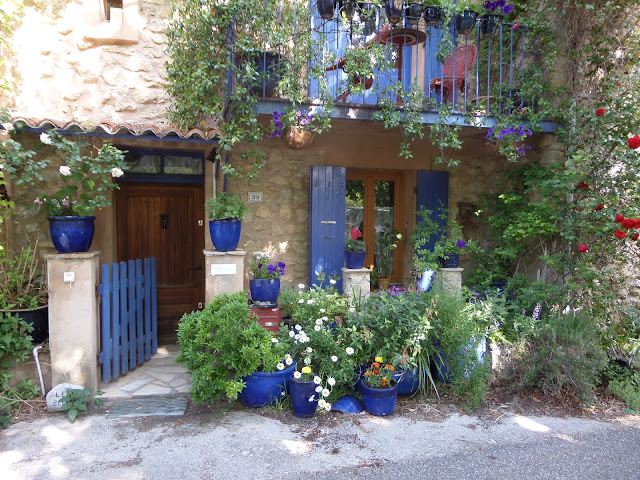Brave New World
After
watching England's football team (mercifully but deservedly) beat
Tunisia in the last few minutes two nights ago I spent a very
enjoyable hour on my balcony, calvados in hand and breathing in the
scent of the jasmine all around me (see photo), and got to wondering
about the rôle of the middle classes in a society. I'm not sure why
that thought occurred, although I am very conscious of a battle that
seems to me to be going on for supremacy between the extreme right
and the middle ground in Europe (and elsewhere).
I
immediately recalled something that a Ghanaian student had said to me
at Bristol university in the early 1960s. At the time, the Ghanaian
president Nkrumah was busy slaughtering the middle classes in his
country in order to cement his power. She said, ruefully: “At
least it shows we have a middle class”. Why was that important?
Because at the time most of the rest of the post-colonial, recently
independent countries were engaged in conflict between extreme right
and left-wing contenders for power, promoted by external
capitalist/communist influences. They didn't have a middle class.
So what
is the significance of a middle class, in Napoleon's scornful terms
Britain's “shopkeepers”? According to George Bernard Shaw it was
the bastion of morality (of a sort). GBS said that only the middle
classes valued morality; the rich didn't need it and the poor
couldn't afford it. And the middle classes, the bourgeousie, were
widely ridiculed in artistic circles for their presumed philistinism;
they rejected art that was extreme in any sense, irrespective of its
artistic value, and embraced what was unchallenging. In general, the
middle classes got a poor Press, neither one thing nor the other,
portrayed as having no aesthetic sensibilities and as having
aspirations only to distinguish themselves from the lower classes and
aspiring to (slavishly aping ) the upper classes. This was the
stereotypical picture of the middle classes in a lot of Europe in the
(post-war) 1950s.
Someone
significant (shame on me, I can't remember who) once said that all
important battles have to be fought continually; they are never truly
resolved. That is most certainly true of democracy. And, I think,
the role of the middle classes in democracy is now more important
than ever. Philistines to art and the possibilities of how life
might be lived (keep the aspidistra flying) they may be, though not
necessarily, but they are the bastions that keep extremes of
political greed and power at bay. They also, almost innocently,
assumed the importance and general acceptance of standards: honesty,
integrity, moderation (and, OK, often God and the Queen and so on but
so what). And no one believes that they always adhered to these
“principles” but they did assert the importance of them. I
believe that that assertion (in practice or not) had great importance
in itself.
What I
think is happening in our brave new world is that this “innocence”
persists in middle classes but has become increasingly different from
reality and blinds them to that reality. You could believe (and did)
in what you read in newspapers, heard on the radio or saw on TV. OK,
there were slightly different slants/angles but you could generally
accept the substance as true. You most certainly can't now. There
was a pride in the journalistic profession that journalists checked
facts and gave reasoned opinions on them; that is most certainly no
longer true. The distinction, once the “credo” of The Times
newspaper, between the facts and the opinion, has long gone. There
was a belief that institutions such as the BBC was independent and
would report accurately and fairly, overlooking (innocently) its
dependence on the government for budget. Broadly, you believed what
you heard and saw and that, generally, wasn't too far from reality.
You believed that your local MP did have the interests of his/her
constituency at heart, whatever the conflict of views. The assumed
standards prevailed. Only a true innocent or ignoramus would believe
that now.
What,
in contrast, we have now is “nature red in tooth and claw”. The
power struggles are naked; lies repeated ad nauseam can become
accepted as fact. But persisting innocence makes the middle classes
blind to them and, perhaps, to the power that the middle classes have
in a democracy if wielded as a collectivity. I think we need the
middle classes and their value of standards more than ever now but we
also need the middle classes to lose their innocence and wake up to
the new reality.







